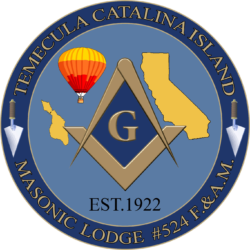WHAT IS A MASON
Freemasonry is a fraternal organisation that arose from obscure origins in the late 16th to early 17th century. Freemasonry now exists in various forms all over the world, with a membership estimated at around six million, including approximately 150,000 under the jurisdictions of the Grand Lodge of Scotland and Grand Lodge of Ireland, over a quarter of a million under the jurisdiction of the United Grand Lodge of England, and just under two million in the United States.
The fraternity is administratively organised into independent Grand Lodges or sometimes Orients, each of which governs its own jurisdiction, which consists of subordinate (or constituent) Lodges. The various Grand Lodges recognise each other, or not, based upon adherence to landmarks. A Grand Lodge will usually deem other Grand Lodges who share common landmarks to be regular, and those that do not to be “irregular” or “clandestine”.
General requirements
Generally, to be accepted for initiation as a regular Freemason, a candidate must:
1. Be a man who comes of his own free will.
- 2. Believe in a Supreme Being (the form of which is left to open interpretation by the candidate).
- 3. Be at least the minimum age (from 18–25 years old depending on the jurisdiction. In some jurisdictions the son of a Mason, known as a “Lewis,” may join at an earlier age than others).
- 4. Be of good morals, and of good reputation.
- 5. Be of sound mind and body (lodges had in the past denied membership to a man because of a physical disability; however, now, if a potential candidate says a disability will not cause problems, it will not be held against him).
- 6. Be free-born (or “born free”, i.e., not born a slave or bondsman). As with the previous, this is entirely an historical holdover, and can be interpreted in the same manner as it is in the context of being entitled to write a will. Some jurisdictions have removed this requirement.
- 7. Be capable of furnishing character references, as well as one or two references from current Masons, depending on jurisdiction.
Some Grand Lodges in the United States have an additional residence requirement, candidates being expected to have lived within the jurisdiction for a certain period of time, typically six months.
Having been elected and initiated, a member may subsequently resign from membership of his lodge if he so desires. Additionally, the fraternity may either suspend or expel a member for cause. Where a member has resigned in good standing, not excluded for misdemeanour or non-payment of fees, he continues to be regarded as a mason, albeit non-practising, may rejoin at any time, and may have limited visiting rights.
Membership and religion
Freemasonry explicitly and openly states that it is neither a religion nor a substitute for one. “There is no separate Masonic God”, nor a separate proper name for a deity in any branch of Freemasonry.
Regular Freemasonry requires that its candidates believe in a Supreme Being, but the interpretation of this term is subject to the conscience of the candidate. Consequently, Freemasonry accepts men from a range of faiths, including (but not limited to) Buddhism, Christianity, Hinduism, Islam, Judaism, and Sikhism. As a result, Freemasonry uses Volume of the Sacred Law (VSL) as a generic term for a religious book. As UGLE-based Freemasonry also requires that a VSL be present on the Altar, many Lodges have multiple VSLs available, and a candidate can be obligated on his book of choice.
Since the early 19th century, in the Continental European tradition (which is considered irregular by those Grand Lodges in amity with the United Grand Lodge of England), a very broad interpretation has been given to a non-dogmatic Supreme Being; in the tradition of Baruch Spinoza and Johann Wolfgang von Goethe – or views of The Ultimate Cosmic Oneness – along with Western atheistic idealism and agnosticism.
The form of Freemasonry most common in Scandinavia, known as the Swedish Rite, accepts only Christians

